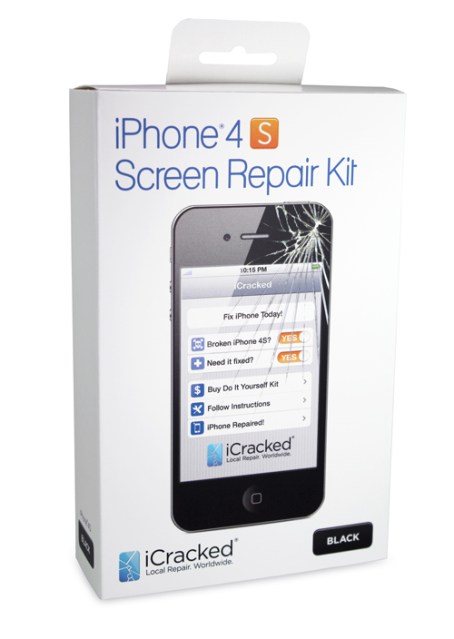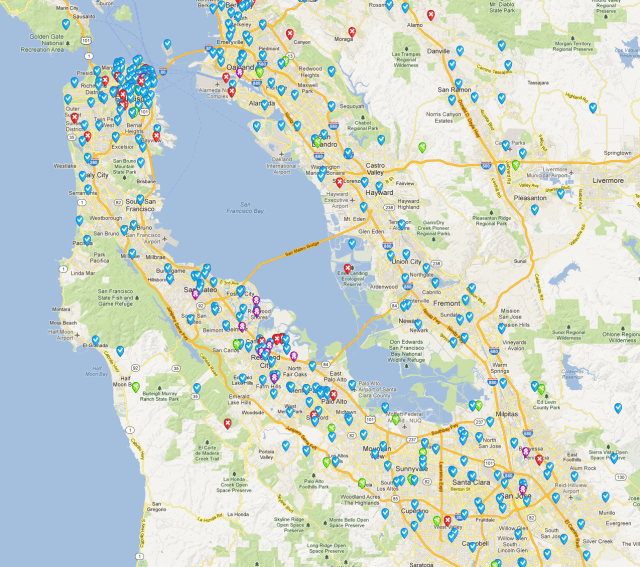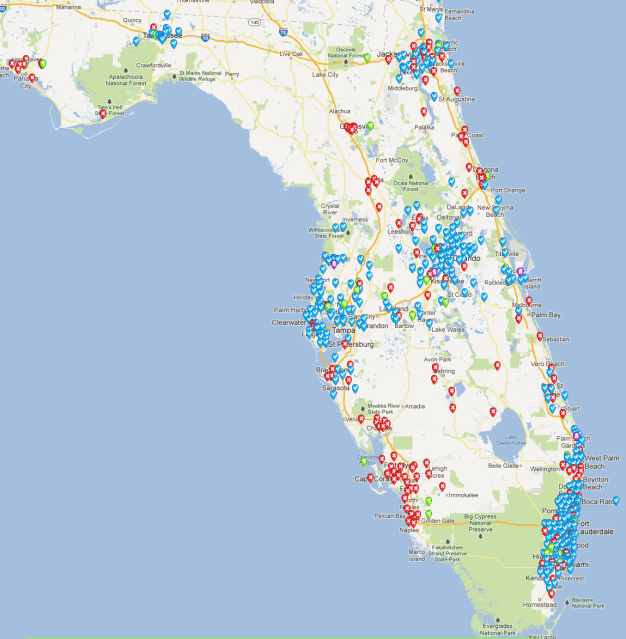 Yes, you can fix that smashed iPhone on demand now. That means no visits to the Apple store, or intensive DIY efforts.
Yes, you can fix that smashed iPhone on demand now. That means no visits to the Apple store, or intensive DIY efforts.
A YC alum called iCracked first unveiled its real-time, iPhone or iPad repair service back in March of last year, as Rip wrote at the time, and a little over a month ago, it launched officially.
Think of it like an “Exec” or an “Uber” for your broken iPhone that you can order straight to your door.
With hardly any publicity at all, the service is blowing up: it boosted iCracked’s number of monthly customers by about 250 percent and the company tells me the business is eyeing “eight figures” in revenue for this year. The changes add iCracked to a growing class of startups like Exec, Uber, Zimride’s Lyft, Instacart and Postmates that are all trying to solve the logistical issues of delivering products and services in real-time in urban cities.
“We want to be the ‘AAA’ for your device,” explains AJ Forsythe, the company’s CEO. “We’re doing on-demand repair and buyback for just about every major city in the U.S.”
He shared some of the maps above and below with us, showing actual completed repairs in the last 30 days. Above is the San Francisco Bay Area, and just for good measure to show that this isn’t a Silicon Valley-only phenomenon, he showed us a map of South Florida (below).
“We’re trying to get to a place where we can get someone to them in the shortest amount of time at the click of a button,” he said. He partnered with a 20-year-old from the U.K. named Martin Amps, who had built a dispatch system just months ago. Amps never implemented it because it was so specialized, but Forsythe found him on a Hacker News posting and thought the system could be of use to iCracked.
Up until then, iCracked’s three-prong business model worked similarly. But it didn’t operate in real-time. Customers would have to mail-in their devices or schedule appointments with iTechs.
 iCracked earns revenue in three ways: it does 1) repairs, 2) buybacks and 3) sells do-it-yourself kits (pictured right) for people who want to fix phones themselves.
iCracked earns revenue in three ways: it does 1) repairs, 2) buybacks and 3) sells do-it-yourself kits (pictured right) for people who want to fix phones themselves.
The company has more than 350 “iTechnicians,” who work as contractors and are trained to quickly fix broken iPhones and iPads. They earn decent salaries of between $70,000 and $100,000 a year. Forsythe says he’s selective and he only ends up hiring about 2 to 3 percent of iTech applicants.
While these “iTechs” aren’t full employees of the startup, iCracked earns revenue by selling them parts and connecting them with customers. Depending on whether it’s an iPhone or iPad and the kind of problem a customer has — whether that’s a screen or battery replacement or water damage — costs hover around $75 to 99. But an iPad LCD replacement can top $200 with the mail-in service. If you don’t spring for Apple Care, iCracked beats the cost of paying for an entirely new device or spending more than $200 on a replacement phone.
The “iTechs” make up about 50 percent of iCracked’s revenues, while 30 percent comes from the DIY kits and the remaining 20 percent comes from buybacks, where the company will pay to take old, unused iPhones or iPods off people.
The new real-time dispatch service will also change the buyback program. Before, iPhone owners would have to mail in their devices, get an appraisal seven to 10 days later and then get a check in the mail after that.
Eventually, iCracked will be able to send out an iTech immediately, who will estimate the value of the device, and then give the customer a prepaid debit card for that amount on the spot, which can be redeemed at any local ATM.
This complex, real-time dispatch system is a far cry from where iCracked started. It’s one of those humble “dorm room” businesses that emerged out of Forsythe’s time as an undergrad at Cal Poly-SLO. He gained a reputation on campus as someone who could quickly fix iPhones on the cheap. He then turned it into a business, and started charging people at school $75 per fix.
Eventually, he started scaling up iCracked by finding makers of inexpensive screens and then hiring and training other people to repair devices. After that, he joined Y Combinator’s winter class of startups last year.
The business has some angel investment, but Forsythe says he’s shied away from doing a full Series A round. They’re starting to look for additional growth capital now, however.
“We have this thing called — ‘hardware,'” he joked, poking fun at how venture investors seem to favor software startups.

